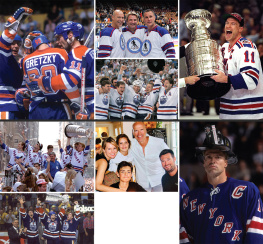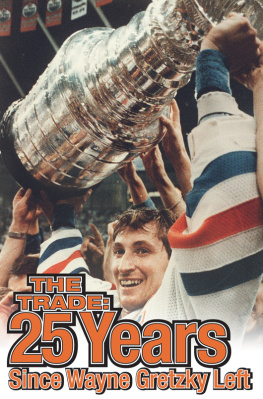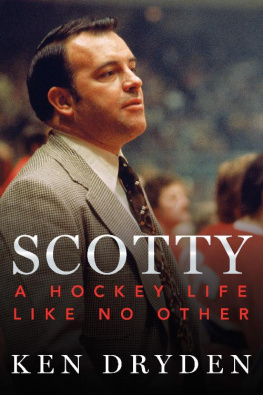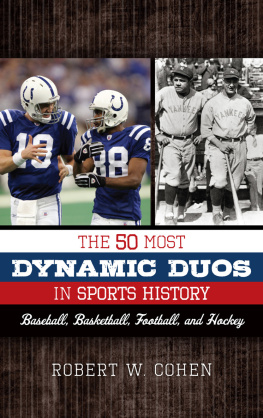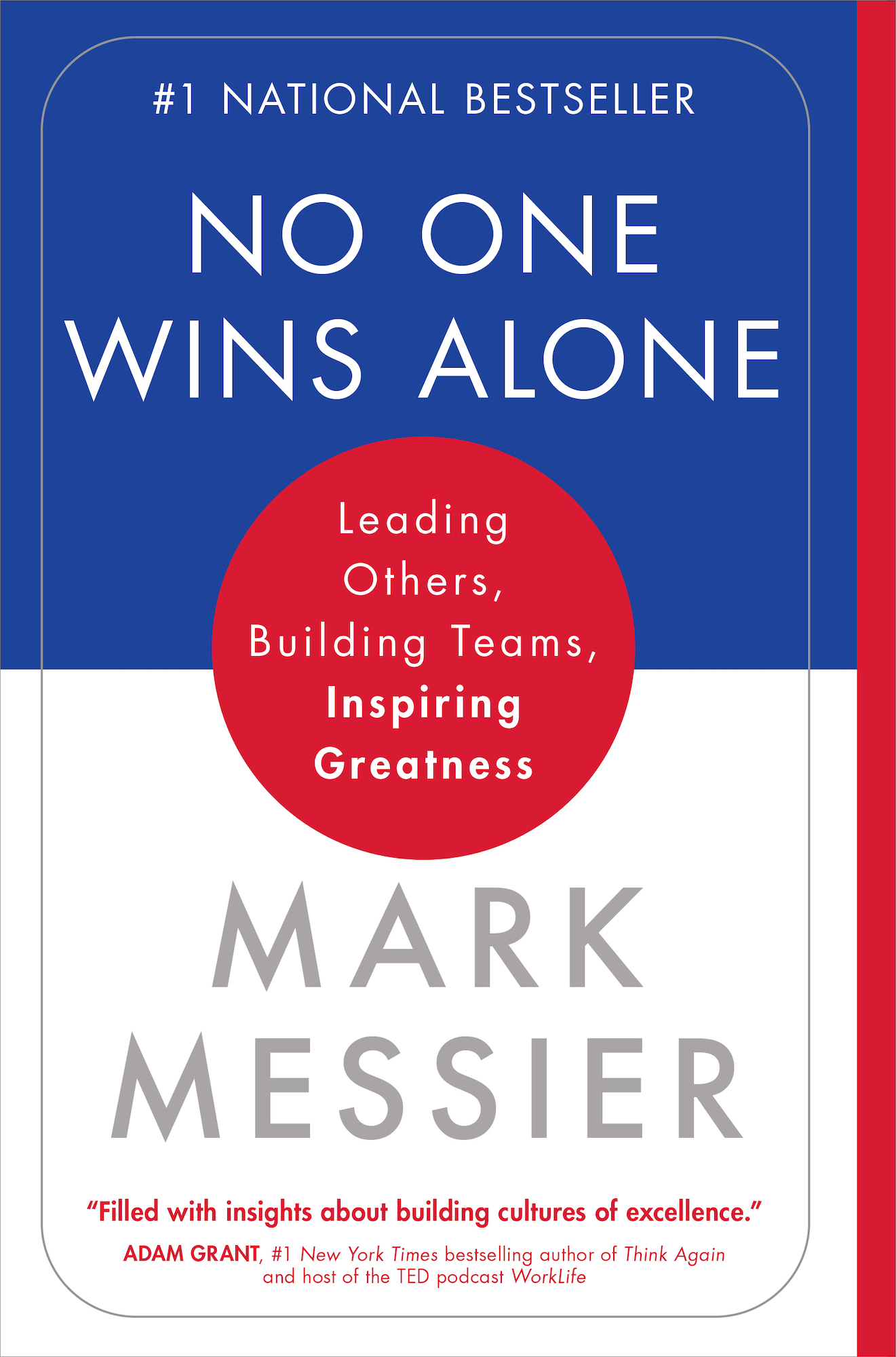Filled with insights about building cultures of excellence.
A CONVERSATION WITH MARK MESSIER ON LEADERSHIP AND TEAMWORK
No One Wins Alone is as much about leadership and team building as it is about your own professional hockey career. What do you hope people will take away from your story?
As a player, I read Sacred Hoops by Phil Jackson and The Winner Within by Pat Riley. I was struck by both books, which delve into the team aspect of sport: creating a safe place for players and emphasizing the importance of sacrificing the me for the we. I wanted to write a book about the spirituality of a team, how beautiful team sports can be when you play in a culture that promotes inclusivenessall important elements of winning. And I was lucky enough to experience this in my professional hockey career. Hockey, like almost everything else, is about people; its about galvanizing them and maximizing their potential. I think everyone can learn something from those lessons.
What do you think is the single most important lesson of leadership?
Im asked that a lot and Im not sure theres one answer. I do know that earning the right to lead people is critical. One of the most important things I did with my teammates was getting to know them on a more personal level: taking the time to understand where they come from, who they are as people, and spending as much time as possible with them away from the rink. You have to establish deeper relationships that go far beyond hockey. This has become more challenging in recent years with the amount of player movement in the game, but you have to establish yourself as someone who is consistent and trustworthy.
So those leadership traits apply off the ice, too?
Yes. The question for a leader is always the same: How do I inspire people? Its a leaders greatest responsibilityinspiring others to motivate themselves. When you create an amazing workplace and a vision that people believe in, theyll find their own motivations. And that has longevity. Thats how people can coach and mentor and lead year after year without burning out or being tuned out. There are moments when you have to light a fire, but over the long haul its better to not hold yourself responsible for motivating others. Thats a short shelf-life for any leader. Anytime youre in a leadership position, dealing with people, the same principles apply.
How important is it to foster good leadership traits in others?
When our Edmonton Oilers team was still young, Lee Fogolin, our captain, stood up and announced to us that Wayne Gretzky would be our new captainIll never forget it. Lee was nearing the end of his career and he knew Wayne was the future and ready to take over. Wayne was already a leader in so many ways. In my opinion, that was true leadership on Lees part. It was the best thing for the team, and it also taught us an important lesson.
Later in my career, when I became a captain, I reflected on that self less action of Lee Fogolin, doing whats best for the team. When you lead by example, those traits permeate the whole team.
Were there any times you think you could have been a better leader?
Absolutelywe all make mistakes and we have to learn from them. One of those times for me was when I became captain of the Oilers after Wayne was traded to L.A. We had a team full of great leaders, but that season, as we went into the playoffs, I felt I had to do everything, that it was all on my shoulders. I compromised my own values as a captain, and my actions showed my teammates that I did not trust them to do their jobs. I wanted to win so badly, but I forgot the most important truth: No one wins alone.
I came to understand that my energy affected the people around me. How I conducted myself, what I brought to the dressing room and the ice, would either help or hurt our team play. This is true for everyoneour energy affects others and we have to be aware of that. When you empower the people around you, and inspire them by setting the right example, then they are free to do their jobs and the whole team prospers.
Leaders dont have all the answers; nobody does. The decisions you make may be the wrong ones. Its necessary to acknowledge when youve made a mistake, step back, take stock, and reassess. Those are important lessons in creating that winning culture and earning that trust.
You mentioned personal energy and how it affects others. In the early eighties, during one off-season, you took a trip to Barbados, where you ended up taking magic mushrooms (psilocybin). It led to some realizations about the body and mind?
I was amazed that something like that could have that big of an effect on me. I had no idea our minds are that powerful. At that point, I was becoming a pro, training my body to be stronger, more resilient. But that experience made me wonder: If the mind is that powerful, how could I train it to do special things at special times under pressure? How can I train my mind as hard as I train my body? That was an awakening for me. Wed done some power-of-positive-thinking seminars early on in Edmonton, about the importance of good self-talk, but that experience in Barbados made me more curious about how else I could become a better player. (Of course, psilocybin is a controlled substance and Im not an expert on it. Its a good idea to talk to a medical professional if you want to know more.)
So then I became interested in Eastern philosophy, meditation, Buddhism, the spirituality of Indigenous peoples. The power of the mind to create a better aura, or energy, around us. That energy affects people, and learning to use it is a powerful tool for any leader. It made me a better player.
You obviously took leadership lessons from these philosophies. You even end the book with a quote from the Upanishads, a Hindu text.
These philosophies contain so many powerful lessons about the goodness that lives in everybodys heart. When you create an environment that celebrates the diversity of peoplenot just where they come from but their ideologies tooit allows people to shine in their own ways. In my opinion, its important to nurture a culture rich with humility and passion and creativity, and all the things that make it fun to come to work. That kind of positive and accepting environment brings the best out of people. The lessons that I took from these philosophies are, I believe, the fundamental building blocks of a championship team.
You played hockey from a young age and have been involved in coaching youth as well. What life lessons can kids learn by playing sports?
I was really interested in the game of hockey because my dad played, but then I fell in love with it when I started to play. There were great benefits beyond learning skills and being active. Sport can be a great teacher, if you allow it. Playing on a team is challenging for a pro, let alone an eight-year-old. Responsibility, accountability, determination, grit, learning to grind and never quit: Is there a scenario in life where those lessons dont apply? Ive used them all my life, and they became just as valuable post-retirement.
Sports also teach how to respond to failure. After all, no one wins all the time. What did you learn during those years when you didnt win the Stanley Cup?

